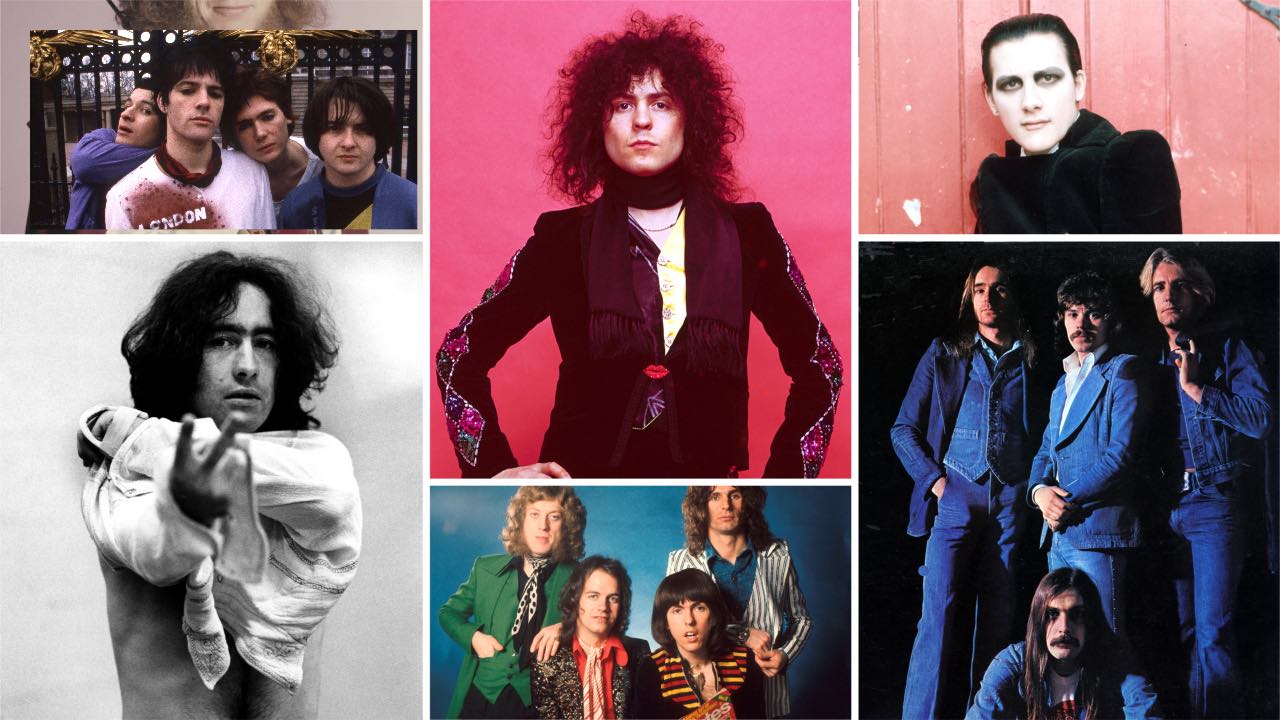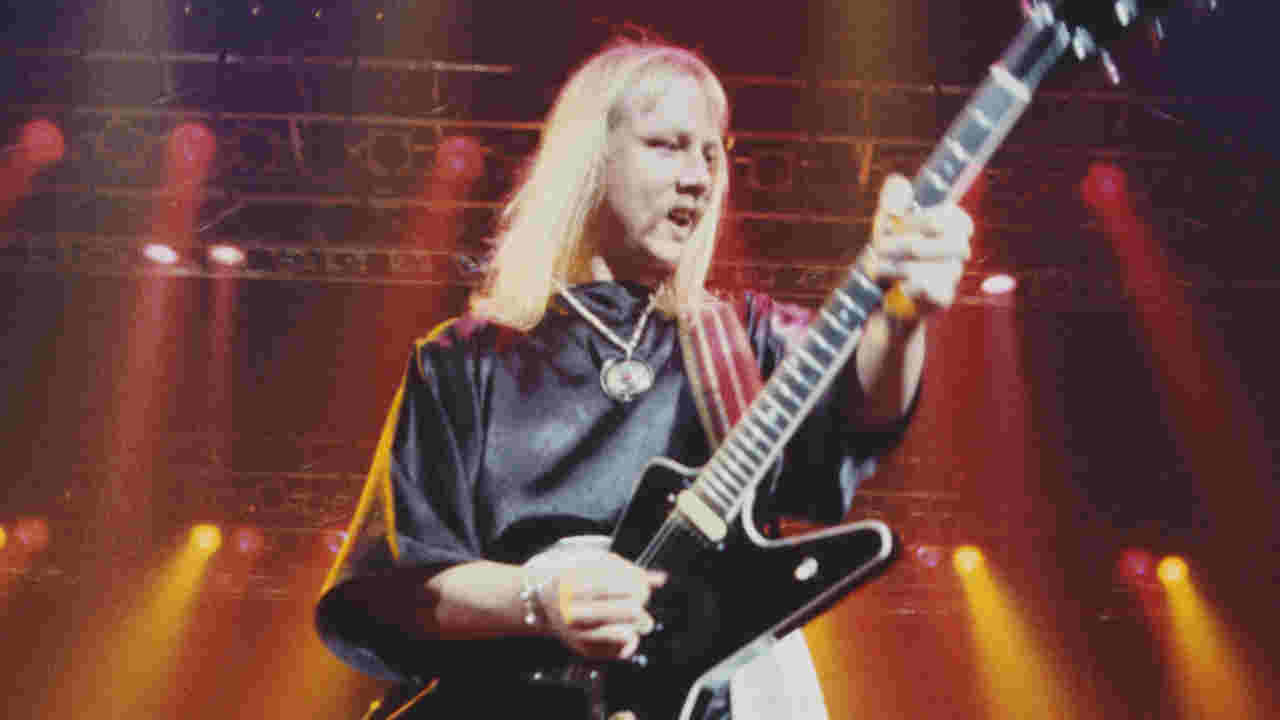10 massively successful British bands who failed to crack America
Not every band can be as huge as The Beatles or Led Zeppelin in America – just ask Slade, The Small Faces and Status Quo

Since The Beatles arrived at New York’s JFK Airport in 1964 and proceeded to take America by storm, breaking the US has been the dream of every British band. Many have succeeded, from the British Invasion bands that followed in the wake of The Fab Four’s success to Led Zeppelin, Pink Floyd and beyond. But success back home doesn’t necessarily mean US fans will automatically embrace a band in their millions – their are countless massively successful and/or hugely influential UK bands who have struggled to get a foothold across the pond. Here are 10 household name Brits who never truly conquered America.

Slade
Bowie might have been the most influential person to emerge from the UK’s early 70s glam rock scene, but bovver-booted yobs Slade were way more successful at the time, notching up six Number 1 singles between 1971 and 1973, one of which, Merry Xmas Everybody, remains a festive staple to this day at one) But the US was less receptive. AM radio – critical for a singles band like Slade – found them too heavy and the great American record buying public weren’t interested in four blokes who looked like football hooligans in top hats, chequered flares and tinfoil capes. The exception were LA headbangers Quiet Riot, who had a Top 5 US hit with a cover Cum On Feel The Noize in 1983.
Status Quo
Status Quo were the kings of British boogie rock during the 70s and early 80s, even headlining the Monsters Of Rock festival in 1982. But while US connoisseurs are fully aware of their greatness, Joe Public proved utterly resistant to their denim-clad charms. Their 1968 debut single Pictures Of Matchstick Men, recorded when they were still playing a quaint toytown psychedelia, was a Top 20 Stateside hit, but it was downhill from there - not one of their subsequent tracks made the slightest dent in America. Still, they’ve notched up nearly 60 UK Top 40 singles, so they’re probably not losing much sleep over it.
The Kinks
The Kinks were part of the wave of British bands who emerged in the wake of Beatlemania, bagging three Number 1 hits with You Really Got Me, Tired Of Waiting and Sunny Afternoon. And while they initially made waves in America, their US success was stymied by a SNAFU over a work visa that meant they were effectively blocked from touring the US between 1965 and 1969. Instead, They never quite recovered – The Rolling Stones, The Who and, later, Led Zeppelin overtook them, leaving The Kinks an adored cult act rather than the superstars they deserved to be.
T. Rex
A contemporary/frenemy of David Bowie, T.Rex leader Marc Bolan was glam rock’s starry-eyed elf king. His band’s cosmic choogle and psychedelic nursery rhyme lyrics turned them into bona fide pop stars back home, but America’s youth was having none of it. To add to the ignominy, their biggest US hit, originally titled Get It On, was renamed Bang A Gong (Get It On) because an obscure jazz rock band had beaten them to the title. Bolan’s death in 1977 meant they’d never get a chance to have a second crack at breaking the States.
The Damned
The Damned were the first British punk band to release both a single (1976’s immortal New Rose) and a full-length album (the following year’s Damned Damned Damned). But while their influence has echoed down the years within the US punk community, widespread recognition has eluded them, partly because of their stylistic shifts (they’ve touched on psychedelic rock, goth and baroque pop), but mostly because America just couldn’t be bothered. Even Guns N’ Roses covering New Rose on 1993’s The Spaghetti Incident? album didn’t do much to change that fact.
Free
As the singer with Bad Company, Paul Rodgers enjoyed massive success in America in the mid-to-late 70s. His former band, trailblazing blues rockers Free, weren’t so lucky. Venerated in Britain during their brief but influential five year career, aside from a burst of interest around 1970’s hit single All Right Now and parent album Fire And Water they remained a cult concern in the US. Today, they’re held up as a prime influence by everyone from the Black Crowes to Joe Bonamassa, but most Americans remain largely oblivious to their brilliance.
Sign up below to get the latest from Classic Rock, plus exclusive special offers, direct to your inbox!
Manic Street Preachers
Welsh provocateurs the Manic Street Preachers threatened to split up if their glam-punk-fuelled 1992 debut album Generation Terrorists failed to outsell Appetite For Destruction. It didn’t, but they carried on anyway, outlasting most of their contemporaries and pretty much every scene that has come and gone since to become unlikely British rock elder statesmen. Not that America noticed – not one of their 14 albums has reached the Billboard Top 200.
The Small Faces
The Small Faces were the perfect late 60s mod band: four immaculately turned-out Londoners delivering a killer mix of rock, R&B, soul and psychedelia. Their run of classic UK singles included the number one All Or Nothing and trippy, Summer Of Love-by-way-of-the-East-End hit Itchycoo Park. But a combination of bad timing, management issues and general apathy on the part of US audiences and industry alike ensured that success wasn’t replicated overseas. Three quarters of the band would go on to join Rod Stewart in the Faces, while singer Steve Marriott had much more impact in America with Humble Pie.
Marillion
Marillion were the standard bearers for so-called ‘neo prog’ movement which emerged from the UK in the first half of the 80s, before becoming unlikely pop stars with 1985 hit single Kayleigh. But American radio wasn’t ready for complex songs with vividly poetic lyrics sung by a six-foot-five Scotsman who called himself Fish, and they hardly made a splash. Still, a decade and half (and one singer) later, they pioneered the crowdfunding model, which means they had way more influence than you realise.
The Jam
Fronted by youthful, sharp-suited firebrand Paul Weller, The Jam brought a mod edge to the punk scene, while their songs about tube stations, public schools and rundown suburban towns were snapshots of Britain in the late 70s and early 80s. But the 18 consecutive Top 40 singles they racked up at home – including four number ones – counted for nothing in America, which was in the grip of new wave and couldn’t give a monkey’s about public schools, tube stations or rundown suburban towns.
Dave Everley has been writing about and occasionally humming along to music since the early 90s. During that time, he has been Deputy Editor on Kerrang! and Classic Rock, Associate Editor on Q magazine and staff writer/tea boy on Raw, not necessarily in that order. He has written for Metal Hammer, Louder, Prog, the Observer, Select, Mojo, the Evening Standard and the totally legendary Ultrakill. He is still waiting for Billy Gibbons to send him a bottle of hot sauce he was promised several years ago.

